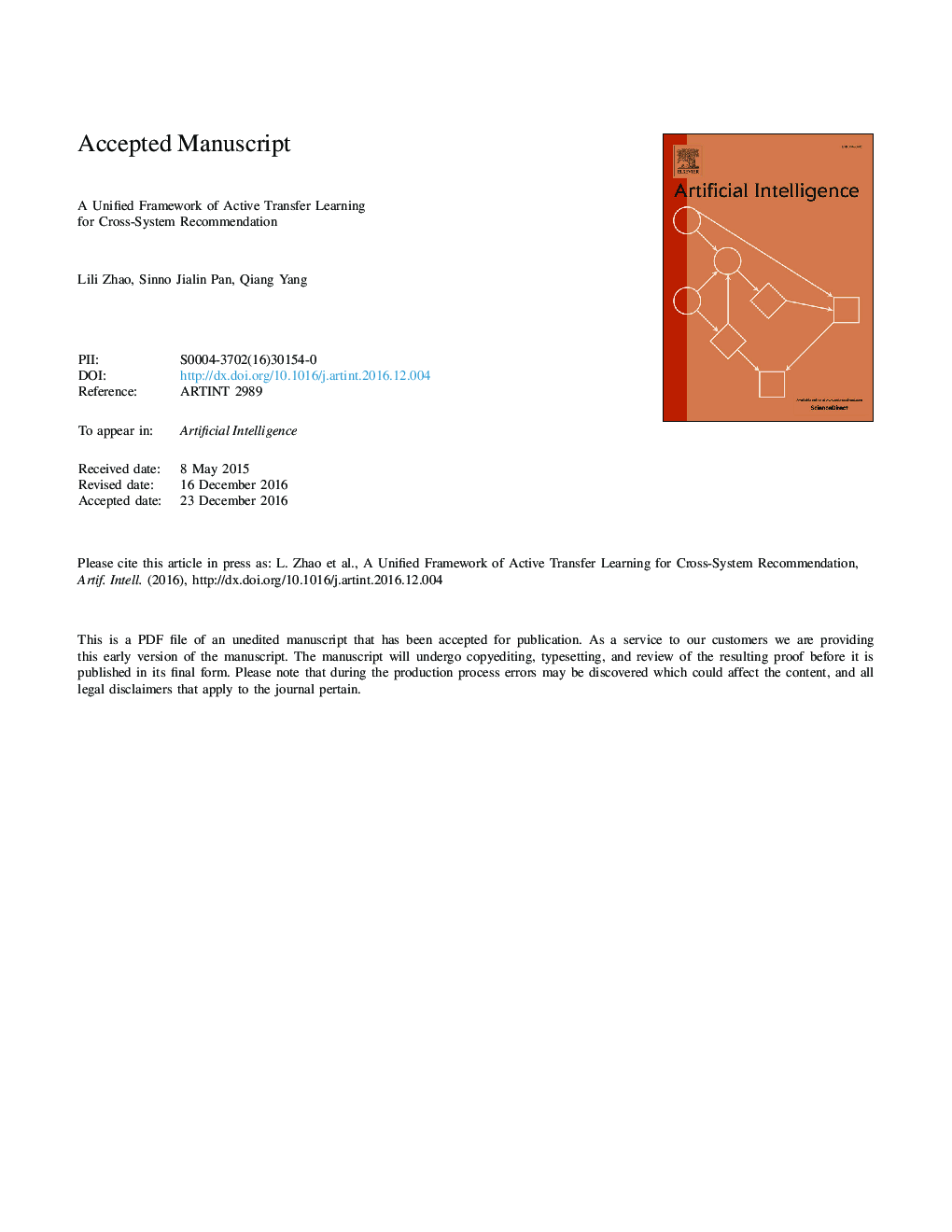| کد مقاله | کد نشریه | سال انتشار | مقاله انگلیسی | نسخه تمام متن |
|---|---|---|---|---|
| 4942080 | 1436987 | 2017 | 37 صفحه PDF | دانلود رایگان |
عنوان انگلیسی مقاله ISI
A unified framework of active transfer learning for cross-system recommendation
ترجمه فارسی عنوان
یک چارچوب یکپارچه از یادگیری فعال برای توصیف سیستم متقابل
دانلود مقاله + سفارش ترجمه
دانلود مقاله ISI انگلیسی
رایگان برای ایرانیان
کلمات کلیدی
انتقال یادگیری، یادگیری فعال، سیستم توصیهگر،
موضوعات مرتبط
مهندسی و علوم پایه
مهندسی کامپیوتر
هوش مصنوعی
چکیده انگلیسی
In the past decade, artificial intelligence (AI) techniques have been successfully applied to recommender systems employed in many e-commerce companies, such as Amazon, eBay, Netflix, etc., which aim to provide personalized recommendations on products or services. Among various AI-based recommendation techniques, collaborative filtering has proven to be one of the most promising methods. However, most collaborative-filtering-based recommender systems, especially the newly launched ones, have trouble making accurate recommendations for users. This is caused by the data sparsity issue in recommender systems, where little existing rating information is available. To address this issue, one of the most effective practices is applying transfer learning techniques by leveraging relatively rich collaborative data knowledge from related systems, which have been well running. Previous transfer learning models for recommender systems often assume that a sufficient set of entity correspondences (either user or item) across the target and auxiliary systems (a.k.a. source systems) is given in advance. This assumption does not hold in many real-world scenarios where entity correspondences across systems are usually unknown, and the cost of identifying them can be expensive. In this paper, we propose a new transfer learning framework for recommender systems, which relaxes the above assumption to facilitate flexible knowledge transfer across different systems with low cost by using an active learning principle to construct entity correspondences across systems. Specifically, for the purpose of maximizing knowledge transfer, we first iteratively select entities in the target system based on some criterion to query their correspondences in the source system. We then plug the actively constructed entity correspondences into a general transferred collaborative-filtering model to improve recommendation quality. Based on the framework, we propose three solutions by specifying three state-of-the-art collaborative filtering methods, namely Maximum-Margin Matrix Factorization, Regularized Low-rank Matrix Factorization, and Probabilistic Matrix Factorization. We perform extensive experiments on two real-world datasets to verify the effectiveness of our proposed framework and the three specified solutions for cross-system recommendation.
ناشر
Database: Elsevier - ScienceDirect (ساینس دایرکت)
Journal: Artificial Intelligence - Volume 245, April 2017, Pages 38-55
Journal: Artificial Intelligence - Volume 245, April 2017, Pages 38-55
نویسندگان
Lili Zhao, Sinno Jialin Pan, Qiang Yang,
